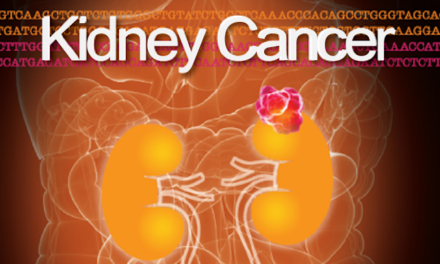
DART Study: A phase 2 randomized trial of dalantercept plus axitinib versus placebo plus axitinib in advanced renal cell carcinoma (RCC): Results from the part 2 placebo-controlled trial.
Abstract
Agents targeting the vascular endothelial growth factor (VEGF) pathway in patients (pts) with advanced renal cell carcinoma (RCC) have limited activity due to the development of alternate angiogenic escape pathways, suggesting the need for therapeutic approaches that can augment angiogenic blockade. Activin receptor-like kinase 1 (ALK1) is a type I receptor of the TGF-β superfamily and is a novel angiogenesis target involved in blood vessel maturation. Concurrent targeting of ALK1 and vascular endothelial growth factor receptor (VEGFR) signaling results in dual angiogenic blockade and augmented inhibition of tumor growth in RCC xenograft models. Dalantercept is an ALK1 receptor-fusion protein that acts as a ligand trap and achieved additive efficacy with a VEGFR tyrosine kinase inhibitor (TKI) in RCC xenograft models. We conducted a Phase 1 trial testing the combination of dalantercept plus axitinib in pts previously treated with other VEGF-directed agents (Voss et al., 2016), followed by this double-blind placebo controlled randomized phase 2 trial.
The primary objective of this study was to determine whether treatment with dalantercept plus axitinib prolonged PFS compared to axitinib plus placebo in pts with advanced RCC. Pts were randomized 1:1 to receive either dalantercept (0.9 mg/kg was selected based on Part 1) or placebo SC Q3W plus axitinib 5 mg PO BID. Key eligibility: predominantly clear cell RCC, 1 prior VEGFR TKI, < 3 prior treatments, and ECOG ≤1. Clinicaltrials.gov NCT01727336.
At the time of the primary data analysis, a total of 119 pts were enrolled (58 randomized to dalantercept + axitinib and 61 to placebo + axitinib) and achieved median PFS 6.8 months for dalantercept + axitinib vs 5.6 months for placebo + axitinib. Dalantercept + axitinib did not decrease the rate of disease progression or death (HR 1.11, 2-sided 95% CI [0.71, 1.73], 1-sided p-value 0.67). The confirmed objective response rate (ORR) was 19% for dalantercept + axitinib vs 25% for placebo + axitinib (p-value 0.43). In the subgroup of pts who received 2 or more prior systemic anti-cancer therapies, median PFS was 8.1 months for dalantercept + axitinib vs 7.0 months for placebo + axitinib (HR 0.78, 2-sided 95% CI [0.33, 1.87], 1-sided p-value 0.29).
The number of pts reporting at least 1 grade 3 AE regardless of causality was similar in both study arms (59 vs 64%, dalantercept + axitinib vs placebo + axitinib). The safety profile was similar to that seen in the Phase 1 trial and previous dalantercept trials.
In this double-blind placebo-controlled trial, the addition of dalantercept to standard of care axitinib did not lead to a statistically significant increase in PFS in previously treated pts with RCC. Based on the lack of efficacy, the development of dalantercept has been discontinued.
Authors: Martin H. Voss | Nicholas J. Vogelzang | Mayer Fishman | Robert S. Alter | Brian I. Rini | J. Thaddeus Beck | Monika Joshi | Michael B. Atkins | Xiaosha Zhang | Chad Glasser | Musa Mutyaba | Brian Vidal | Matthew L. Sherman | Rupal S. Bhatt | Elizabeth R. Plimack | DART Study Group
Journal: Kidney Cancer, vol. 2, no. s1, pp. I-S50, 2018


